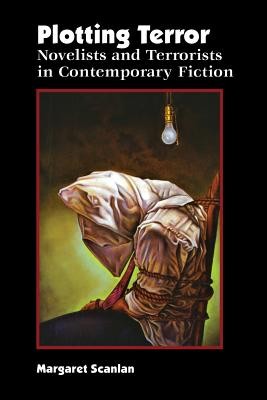
- We will send in 10–14 business days.
- Author: Margaret Scanlan
- Publisher: University of Virginia Press
- ISBN-10: 0813920310
- ISBN-13: 9780813920313
- Format: 15.9 x 23.7 x 2.1 cm, hardcover
- Language: English
- SAVE -10% with code: EXTRA
Reviews
Description
Is literature dangerous? In the romantic view, writers were rebels--Shelley's "unacknowledged legislators of mankind"--poised to change the world. In relation to twentieth-century literature, however, such a view becomes suspect. By looking at a range of novels about terrorism, Plotting Terror raises the possibility that the writer's relationship to actual politics may be considerably reduced in the age of television and the Internet.
Margaret Scanlan traces the figure of the writer as rival or double of the terrorist from its origins in the romantic conviction of the writer's originality and power through a century of political, social, and technological developments that undermine that belief. She argues that serious writers like Friedrich Dürrenmatt, Doris Lessing, and Don DeLillo imagine a contemporary writer's encounter with terrorists as a test of the old alliance between writer and revolutionary.
After considering the possibility that televised terrorism is replacing the novel, or that writing, as contemporary theory would have it, is itself a form of violence, Scanlan asks whether the revolutionary impulse itself is dying--in politics as much as in literature. Her analyses take the reader on a fascinating exploration of the relationship between actual bombs and stories about bombings, from the modern world to its electronic representation, and from the exercise of political power to the fiction writer's power in the world.
EXTRA 10 % discount with code: EXTRA
The promotion ends in 20d.14:40:10
The discount code is valid when purchasing from 10 €. Discounts do not stack.
- Author: Margaret Scanlan
- Publisher: University of Virginia Press
- ISBN-10: 0813920310
- ISBN-13: 9780813920313
- Format: 15.9 x 23.7 x 2.1 cm, hardcover
- Language: English English
Is literature dangerous? In the romantic view, writers were rebels--Shelley's "unacknowledged legislators of mankind"--poised to change the world. In relation to twentieth-century literature, however, such a view becomes suspect. By looking at a range of novels about terrorism, Plotting Terror raises the possibility that the writer's relationship to actual politics may be considerably reduced in the age of television and the Internet.
Margaret Scanlan traces the figure of the writer as rival or double of the terrorist from its origins in the romantic conviction of the writer's originality and power through a century of political, social, and technological developments that undermine that belief. She argues that serious writers like Friedrich Dürrenmatt, Doris Lessing, and Don DeLillo imagine a contemporary writer's encounter with terrorists as a test of the old alliance between writer and revolutionary.
After considering the possibility that televised terrorism is replacing the novel, or that writing, as contemporary theory would have it, is itself a form of violence, Scanlan asks whether the revolutionary impulse itself is dying--in politics as much as in literature. Her analyses take the reader on a fascinating exploration of the relationship between actual bombs and stories about bombings, from the modern world to its electronic representation, and from the exercise of political power to the fiction writer's power in the world.


Reviews